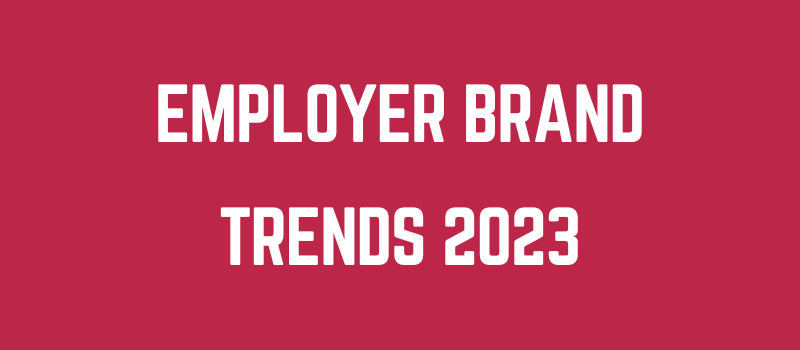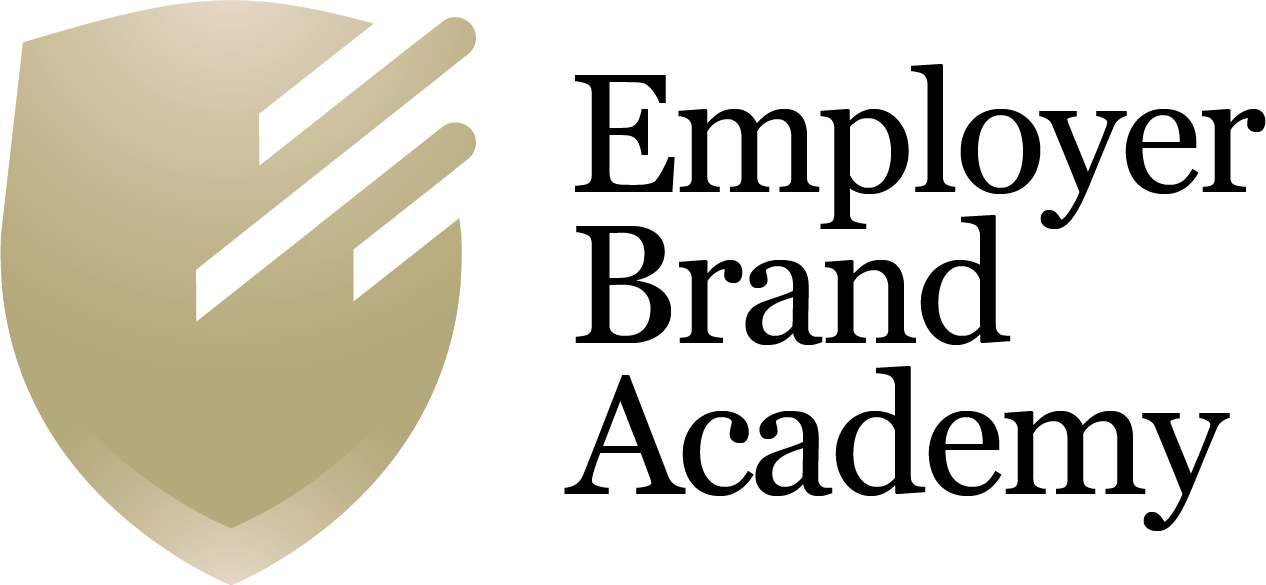Employer Branding Trends 2023
- 22/01/2023
- Posted by: Ali Ayaz
- Categories: Employer Branding, Recruitment

7 KEY TRENDS IN 2023 FOR NAVIGATING THE TALENT SHORTAGE
Keeping up with the employer branding trends as we entered 2023 the labour market is the only solution to survive the talent shortage. First, we are still recovering from the effects of the pandemic. Additionally; with labour shortages, the Great Resignation, and signs of another recession, employer brand management became even more crucial. Now, it’s more important than ever for organizations to rethink their talent acquisition and retention strategies.
Talent shortage directly links to three key themes.
- Employer brand management
- Sourcing and recruiting specialized talent
- Talent retention and employee engagement through flexible working arrangements and remote work policies, as well as investment in training and development programs.
TREND 1: SURVEYS FOR ENGAGEMENT
Retaining current employees is becoming more difficult. Therefore, it’s crucial for companies to have mid-term and long-term strategies to improve their culture. One effective way to do this is by conducting employee engagement surveys to gather data on what makes the organization an attractive employer. By analyzing the results, companies can enhance their employer brand and communication efforts. Regular feedback from employees allows companies to identify areas for improvement. This can boost employee engagement and retention. These efforts are especially crucial in today’s job market, where competition for top talent is fierce and companies must retain their best employees.
Moreover, employee engagement surveys and focus groups can help companies address issues related to diversity, equity, and inclusion (DEI). By gathering data on the experiences of employees from diverse backgrounds, companies can develop effective DEI strategies that promote inclusive and equitable workplaces. This, in turn, can foster a sense of belonging and lead to increased employee satisfaction and retention.
Recommendations
- Conduct employee engagement surveys regularly
- Use the results to improve the existing employer brand and internal communications
- Take action on feedback received from surveys to improve employee engagement and retention
TREND 2: STREAMLINING PROCESSES FOR THE NEW WORKFORCE
With Gen Z set to make up around a quarter of the workforce in the next two years, companies will need to adapt their recruitment processes to meet the expectations of this new generation of employees. This includes streamlining the interview process, with a focus on communication and simplicity. Companies will also need to be aware of the unique priorities and expectations of Gen Z employees, such as a desire for work-life balance and a focus on mental and physical health. Rather than staying only as one of the employer branding trends, this will have to be the default starting in 2023.
Recommendations
- Network with the young talent to introduce them to the work culture
- Streamline the interview process to make it more straightforward and efficient
- Prioritize communication throughout the recruitment process
- Take into consideration the specific expectations and priorities of Gen Z employees when recruiting
TREND 3: EMPLOYER BRANDING FOR SUSTAINABLE TALENT PIPELINES
Today’s job market presents significant challenges for companies in attracting and retaining top talent, especially for industries facing talent shortages. To remain competitive, companies must invest in building a strong employer brand and sourcing strategies that attract the right candidates. This means shifting away from traditional job postings and actively seeking out and persuading top talent to join the team.
To achieve this goal, specialized recruiters and employer branding professionals will be in high demand. These experts can effectively market the company and its job opportunities to the right candidates, while also understanding the specific needs of different roles. They can also collaborate across different areas of the business, such as marketing, human resources, and communications, leveraging a broad set of cross-disciplinary skills.
To support their recruitment needs, companies may leverage a mix of internal and external resources. These resources can vary greatly and may include using recruitment agencies, job boards, and social media platforms, as well as building a network of industry contacts and alumni. By using a mix of different sourcing channels, companies can increase their chances of finding the right candidates for their open roles.
Recommendations
- Develop a comprehensive employer branding strategy that showcases the company’s unique strengths as an employer
- Invest in specialized recruiters and employer branding professionals
- Utilize a mix of internal and external resources to support recruitment needs
TREND 4: HIRING THE TALENT FOR SOFT SKILLS
As the world becomes increasingly digital, traditional hard skills are becoming less important than soft skills for companies. Given the rise of remote work and changes brought about by the pandemic, candidates with strong soft skills, such as communication, collaboration, and problem-solving, are in high demand.
To meet this demand, many companies are turning to junior programs and mentoring initiatives to onboard and train new talent. Through such programs, companies can attract and retain top talent, as well as upskill existing employees and create internal career advancement opportunities. This one of the employer branding trends started back during the pandemic and is at its strongest in 2023.
It’s important to note that soft skills are increasingly essential in today’s job market. This is because they are vital for effective collaboration and communication in remote and digital work environments. In addition, upskilling existing employees can lead to a more engaged and committed workforce, as well as cost savings for the company through reduced turnover and the need to hire externally.
Recommendations
- Prioritize soft skills when hiring, with a focus on communication, collaboration, and problem-solving
- Invest in junior programs that effectively onboard and train new talent
- Offer upward mobility for existing employees through training and development programs
TREND 5: HONEST DEI ACTIONS FOR KEEPING IT REAL
Taking actions for a more inclusive and equitable workplace is becoming increasingly important for organizations. In the coming year, we will see a greater focus on DEI strategies and specialized jobs in this field. However, it’s important to note that DEI should not be viewed as a marketing tactic or buzzword, but rather as a fundamental aspect of a company’s culture and everyday operations.
To achieve this, many companies will conduct DEI audits internally and focus on hiring talent from diverse backgrounds. The leadership team will set the strategy and use DEI data to guide their strategic decisions. The DEI strategy will then guide all processes towards more inclusive and equitable recruitment, career advancement, and employee experience programs and processes. By taking honest and genuine actions towards DEI, companies will be able to create a more inclusive and equitable workplace for all employees.
Recommendations
- Conduct internal DEI audits to identify areas for improvement
- Prioritize hiring talent from diverse backgrounds
- Use DEI data to guide strategic decisions and shape all processes towards inclusivity and equity
- Ensure that DEI is not just a buzzword, but a fundamental aspect of the company culture and everyday operations via employer branding.
TREND 6: DEDICATED EMPLOYER BRAND EXPERTS FOR BRAND ALIGNMENT
As the importance of employer branding continues to grow, companies will increasingly focus on aligning their brand with their overall marketing and communications strategies. To accomplish this, a dedicated team of employer brand experts is necessary, with a broad set of cross-disciplinary skills to manage all aspects of the employer brand. These professionals will be responsible for content creation, as well as channel management.
Employer brand experts will collaborate closely with talent acquisition, employer branding, and employee experience teams. The goal will be to ensure that the company’s value propositions as an employer are effectively communicated and integrated into the company culture. This collaboration is critical for attracting and retaining the right talent, and aligning the company’s brand with its overall goals.
Recommendations
- Create a dedicated team of employer brand experts with a broad set of cross-disciplinary skills
- Ensure that employer branding is effectively integrated into overall marketing and communications strategies
- Prioritize alignment between the company’s brand and its overall goals in order to attract and retain the right talent
TREND 7: EMPLOYEE ADVOCACY & EMPLOYEE BRANDING
In the current job market, companies recognize the importance of employee-generated content in showcasing company culture. This involves using employee advocacy programs to promote the employer brand on social media and digital platforms. As a result, we’ll see an increase in the use of video and visual content to showcase company culture and offer potential candidates a glimpse into daily life at the organization.
It’s worth noting that employee branding is not only beneficial for attracting new talent, but also for retaining current employees and promoting a positive company culture. When employees are involved in sharing their experiences and perspectives, it helps them feel valued and engaged. It also helps to reinforce the company’s brand message and mission. Companies that prioritize employee-generated content and employee advocacy programs will be able to leverage their employees as powerful brand ambassadors and attract and retain top talent more effectively.
Recommendations
- Implement employee advocacy programs to promote the employer brand on social media and digital platforms
- Use video and visual content to showcase company culture
- Encourage employee-generated content to give potential candidates a glimpse into the day-to-day life of working at the organization
8- CONCLUDING 2023’S EMPLOYER BRANDING TRENDS
As we enter 2023, following employer branding trends is crucial as the labor market is still recovering from the effects of the pandemic. To stay competitive, companies will need to rethink their talent acquisition and retention strategies. By understanding these trends and implementing effective strategies, companies can create sustainable talent pipelines, improve employee engagement and retention, and meet the needs of a changing workforce.
To learn more, you can join a free week session of Employer Brand Academy certificate courses here or you can download our free ebook creating an authentic employer brand here.

[…] Continue reading on Employer Brand Academy blog […]
[…] miss out on the latest employer branding trends for 2023! Click here to discover how you can build a stronger employer brand and stand out in the talent […]